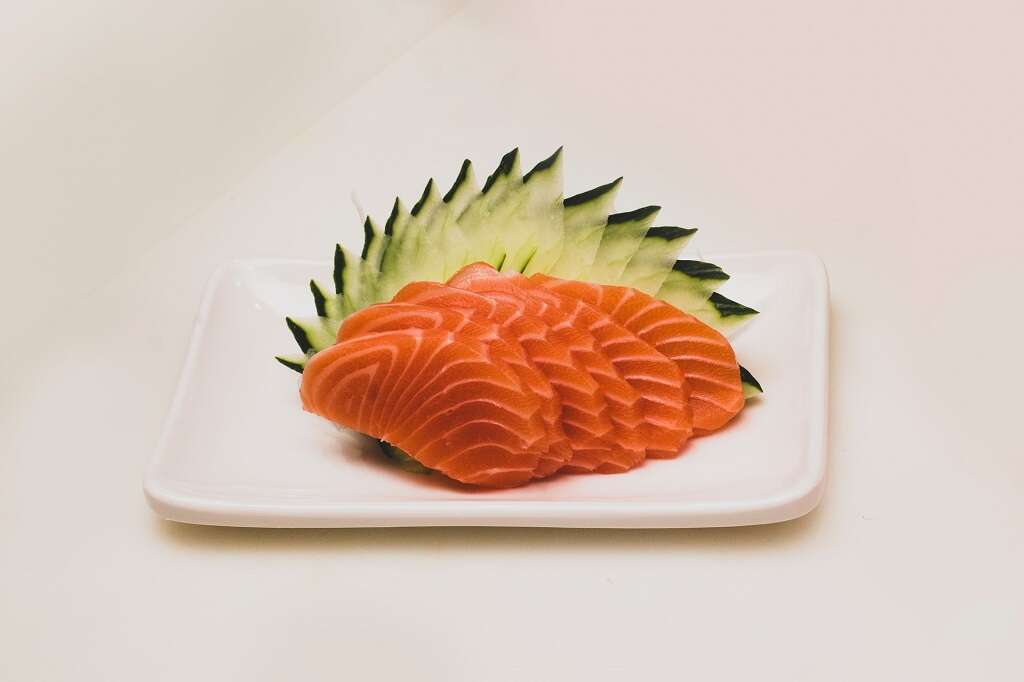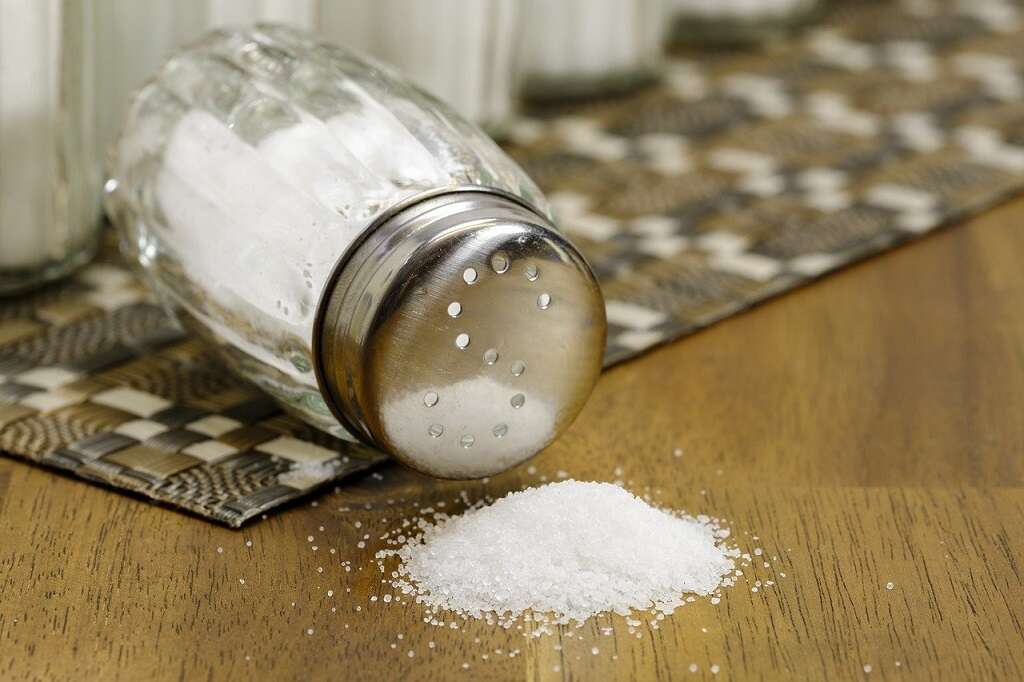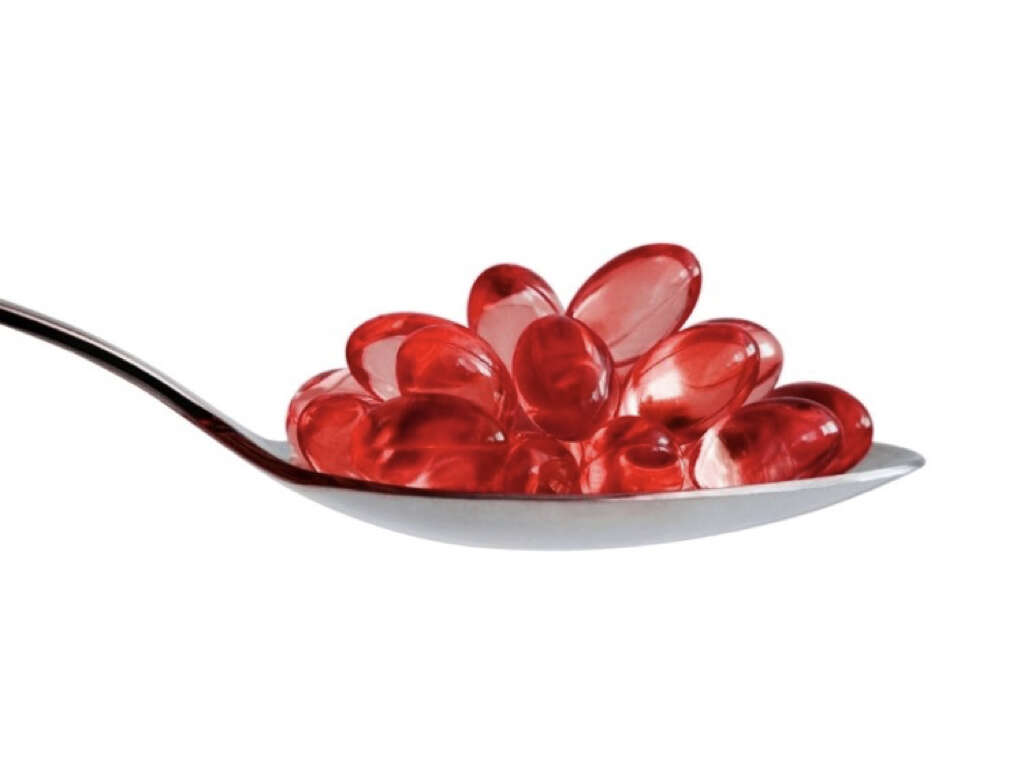Is Sushi Healthy?
 Article Sources
Article Sources
- 1. 'Omega-3 Fatty Acids.' Office of Dietary Supplements (ODS), 31 Aug. 2020, ods.od.nih.gov/factsheets/Omega3FattyAcids-Consumer/.
- 2. 'Fish and Shellfish.' uk, 27 Apr. 2018, www.nhs.uk/live-well/eat-well/fish-and-shellfish-nutrition/.
- 3. 'Dietary Fiber, Gut Microbiota, and Metabolic Regulation—Current Status in Human Randomized Trials.' PubMed Central (PMC), www.ncbi.nlm.nih.gov/pmc/articles/PMC7146107/.
- 4. '6 Wonderful Benefits of Wasabi.' Organic Facts, 30 Jan. 2020, www.organicfacts.net/health-benefits/vegetable/health-benefits-of-wasabi.html.
- 5. 'Antibacterial Activities of Wasabi Against Escherichia Coli O157:H7 and Staphylococcus Aureus.' PubMed Central (PMC), www.ncbi.nlm.nih.gov/pmc/articles/PMC5030237/.
- 6. 'How Eating Fish Helps Your Heart.' Mayo Clinic, 28 Sept. 2019, www.mayoclinic.org/diseases-conditions/heart-disease/in-depth/omega-3/art-20045614.
- 7. 'New Qualified Health Claims for EPA and DHA Omega-3.' S. Food and Drug Administration, 19 June 2019, www.fda.gov/food/cfsan-constituent-updates/fda-announces-new-qualified-health-claims-epa-and-dha-omega-3-consumption-and-risk-hypertension-and.
- 8. 'Nori Recipe & Nutrition | Precision Nutrition's Encyclopedia of Food.'Precision Nutrition, 4 July 2019, www.precisionnutrition.com/encyclopedia/food/nori.
- 9. 'Minerals from Macroalgae Origin: Health Benefits and Risks for Consumers.' PubMed Central (PMC), www.ncbi.nlm.nih.gov/pmc/articles/PMC6266857/.
- 10. 'Salt and Sodium.' The Nutrition Source, 16 Dec. 2019, www.hsph.harvard.edu/nutritionsource/salt-and-sodium/.
- 11. 'Increased Consumption of Refined Carbohydrates and the Epidemic of Type 2 Diabetes in the United States: an Ecologic Assessment1-3.' ResearchGate, www.researchgate.net/publication/8590976/Increased/consumption/of/refined/carbohydrates/and/the/epidemic/of/type/2/diabetes/in/the/United/States/an/ecologic/assessment1-3.
- 12. 'Mercury Guide.'NRDC, www.nrdc.org/stories/mercury-guide.
- 13. 'Meat, Poultry & Seafood from Food Safety for Moms to Be.' S. Food and Drug Administration, 27 Sept. 2018, www.fda.gov/food/people-risk-foodborne-illness/meat-poultry-seafood-food-safety-moms-be.
Sushi originated as a way of preserving fish in Japan. Today, the food has spread beyond Japan and become quite popular in America and all around the world. It comes in a variety of styles, but the food typically includes rice, vegetables, and raw or cooked fish with seaweed. There are three types of sushi: nigiri, maki and temaki.
While sushi can have several health benefits, including healthy doses of important nutrients, its preparation and other factors can pose health risks. These risks can be particularly concerning for certain demographics, so its important to understand the risks and rewards of the popular dish.
1. Best Sushi Choices
Japanese cuisine features many dietary elements that promote longevity. One of the essential parts of the Japanese diet is fish, which contains DHA and EPA omega 3 fatty acids.1‘Omega-3 Fatty Acids.’ Office of Dietary Supplements (ODS), 31 Aug. 2020, ods.od.nih.gov/factsheets/Omega3FattyAcids-Consumer/. Most of the varieties of sushi contain these fatty acids.
Examples of nutritious sushi include maki and nigiri. These delicacies feature salads and cooked vegetables as side dishes that are rich in micronutrients and fiber. Some sushi varieties use healthier types of fish, such as mackerel and salmon, both of which don't have the high levels of mercury present in many common fish like tuna.2‘Fish and Shellfish.’ uk, 27 Apr. 2018, www.nhs.uk/live-well/eat-well/fish-and-shellfish-nutrition/.
2. Beneficial to Gut Health
The Japanese are known for being healthier than many other populations around the world. Among the biggest contributors to the population's good health is fish consumption. Gut microbiota benefit from the fermented foods often found in sushi, including fermented ginger and kimchi, as well as nutrient-rich seaweed.
Likewise, dietary fiber in these vegetables helps promote health gut bacteria.3‘Dietary Fiber, Gut Microbiota, and Metabolic Regulation—Current Status in Human Randomized Trials.’ PubMed Central (PMC), www.ncbi.nlm.nih.gov/pmc/articles/PMC7146107/. It creates a suitable environment for the growth of beneficial bacteria and helps to rid the gut of harmful byproducts.

3. Bolsters Immune System
Wasabi is a flavoring that is used to disinfect the raw fish used to make sushi. It's also used to spice up the delicacy. Research has shown that wasabi provides remarkable health benefits such as strengthening the immune system.4‘6 Wonderful Benefits of Wasabi.’ Organic Facts, 30 Jan. 2020, www.organicfacts.net/health-benefits/vegetable/health-benefits-of-wasabi.html.
Wasabi contains plenty of glucosinolates, beta carotene (provitamin A), and several isothiocyanates, all of which have antimicrobial effects.5‘Antibacterial Activities of Wasabi Against Escherichia Coli O157:H7 and Staphylococcus Aureus.’ PubMed Central (PMC), www.ncbi.nlm.nih.gov/pmc/articles/PMC5030237/. Moreover, wasabi is believed to kill some forms of Staphylococcus and E. coli bacteria.
4. Heart Healthy
The mackerel and salmon used in sushi are rich in protein and docosahexaenoic acid (DHA) omega-3 fatty acids.6‘How Eating Fish Helps Your Heart.’ Mayo Clinic, 28 Sept. 2019, www.mayoclinic.org/diseases-conditions/heart-disease/in-depth/omega-3/art-20045614. These nutrients may lower the risk of developing coronary heart disease and may also promote brain health and good memory.
These findings have been supported by the U.S. Food and Drug Administration (FDA), which stated that there is limited but nonetheless credible evidence that the DHA in oily fish may lower blood pressure and reduce the risk of developing hypertension.7‘New Qualified Health Claims for EPA and DHA Omega-3.’ S. Food and Drug Administration, 19 June 2019, www.fda.gov/food/cfsan-constituent-updates/fda-announces-new-qualified-health-claims-epa-and-dha-omega-3-consumption-and-risk-hypertension-and.

5. Detoxes
The nori that is typically used to prepare sushi has exceptionally high nutritional value. Ten sheets of nori contain 9 calories, 1.3 grams of carbohydrates, 1.5 grams of proteins, 0.1 grams of sugar, and 0.1 grams of fiber.8‘Nori Recipe & Nutrition | Precision Nutrition’s Encyclopedia of Food.’Precision Nutrition, 4 July 2019, www.precisionnutrition.com/encyclopedia/food/nori.
Other nutritionally beneficial seaweed include wakame and kelp. These seaweeds are rich in iodine, which helps to promote the natural processes of detoxification in the liver.9‘Minerals from Macroalgae Origin: Health Benefits and Risks for Consumers.’ PubMed Central (PMC), www.ncbi.nlm.nih.gov/pmc/articles/PMC6266857/. The potent nutrients in seaweed may also help to detox your kidneys and support thyroid health.
6. May Lead to High Sodium Intake
The high concentration of salt in sushi is what makes it so flavorful. This excess salt can be problematic because the kidney is unable to remove it from the blood.10‘Salt and Sodium.’ The Nutrition Source, 16 Dec. 2019, www.hsph.harvard.edu/nutritionsource/salt-and-sodium/.
As a result, blood volume increases as the body tries to dilute the salt. Blood vessels then become thinner and stiffen as they pump more blood. This increases blood pressure and the risk of heart attack, heart failure, and stroke. Try to eliminate soy sauce or choose low sodium soy sauce with your sushi.

7. High in Refined Carbs
One of the main ingredients in sushi is white rice, a refined grain that has been stripped of some nutrients and is also rich in carbohydrates.
Studies show that an increased consumption of refined carbs is associated with a higher prevalence of type 2 diabetes in the U.S.11‘Increased Consumption of Refined Carbohydrates and the Epidemic of Type 2 Diabetes in the United States: an Ecologic Assessment1-3.’ ResearchGate, www.researchgate.net/publication/8590976/Increased/consumption/of/refined/carbohydrates/and/the/epidemic/of/type/2/diabetes/in/the/United/States/an/ecologic/assessment1-3. White rice contains sugars that increase insulin levels and blood pressure. Avoid eating too much rice by choosing to have some raw fish slices along with a sushi or two.
8. Unsafe Mercury Levels
The Natural Resources Defense Council recommends against consuming several types of fish such as marlin and king mackerel because they have high levels of mercury.12‘Mercury Guide.’NRDC, www.nrdc.org/stories/mercury-guide. Mercury can cause serious health issues if it exceeds certain levels in your body.
Tuna also has a bad reputation for having high levels of mercury. However, it depends on the type. Nutritionists recommend using skipjack or light tuna as alternatives to bigeye and ahi (yellowfin) tuna, which often have higher mercury levels.

9. Risk for Foodborne Illness
The way in which food is prepared plays an essential role in food safety and health. Most cooking processes use high heat to remove pathogens and other contaminants from food. Not so for sushi.
Parasites present in sea animals are a significant hazard posed by the consumption of frozen, undercooked, or uncooked seafood. The FDA recommends that certain groups of people, such as the elderly, the pregnant, and people with autoimmune illnesses, adhere to safe seafood practices and avoid eating sushi with raw fish.13‘Meat, Poultry & Seafood from Food Safety for Moms to Be.’ S. Food and Drug Administration, 27 Sept. 2018, www.fda.gov/food/people-risk-foodborne-illness/meat-poultry-seafood-food-safety-moms-be.
10. Sushi Has Health Benefits and Some Risks
Many people enjoy sushi as a tasty delicacy, and sushi provides several health benefits. It promotes growth of beneficial gut bacteria and may improve heart health, while helping the body detoxify.
However, it has some risks, such as health issues related to high salt intake. Moreover, some fish used for sushi may also have high mercury levels. So, it's advisable to be deliberate about the type of sushi one orders. Also, avoid sushi made with extra toppings like mayonnaise and highly processed dressings.









